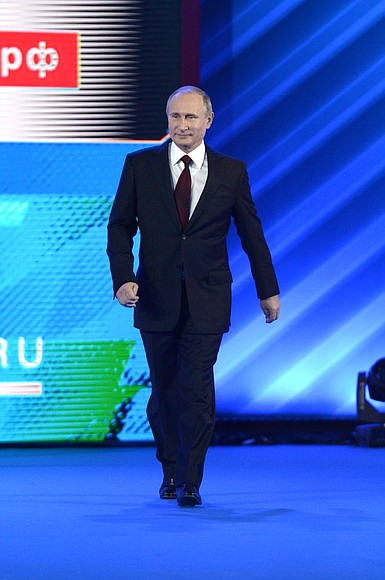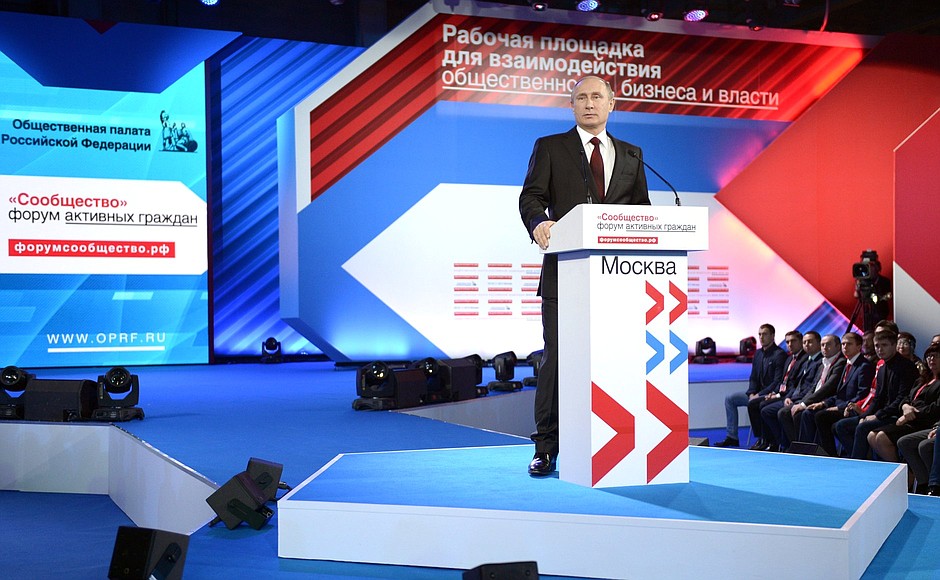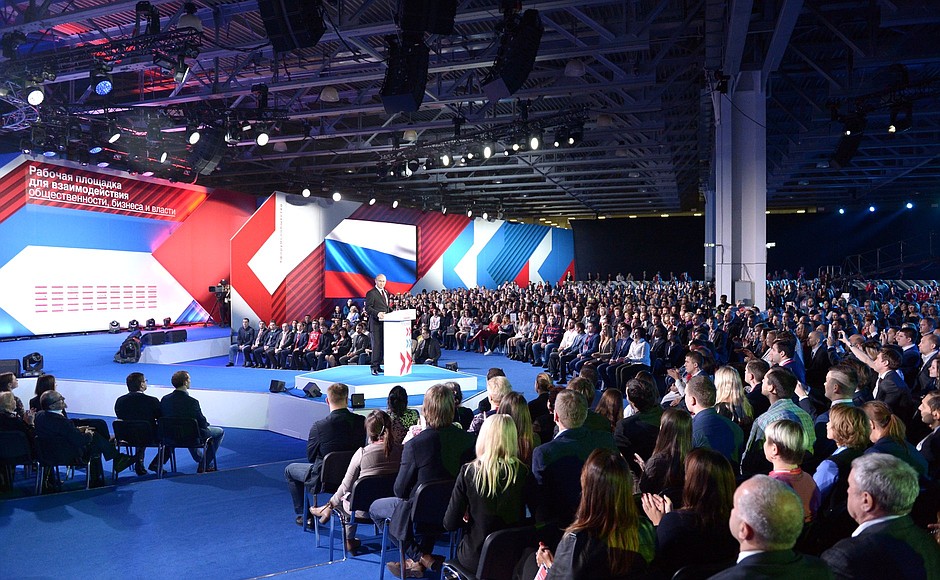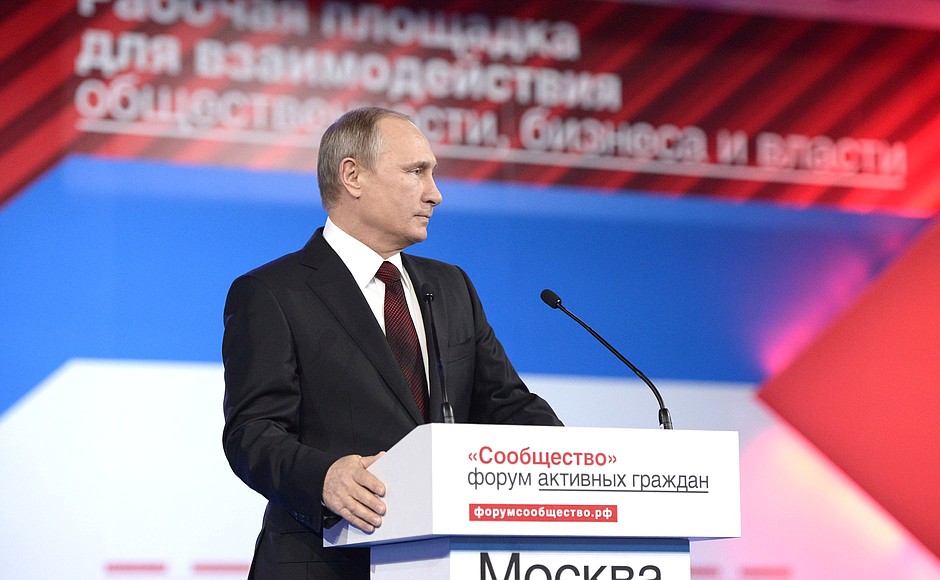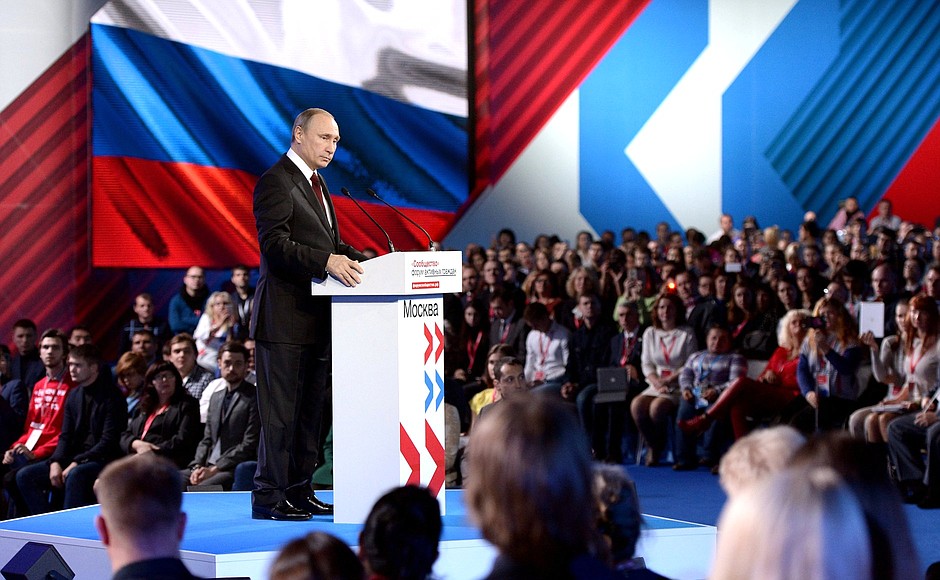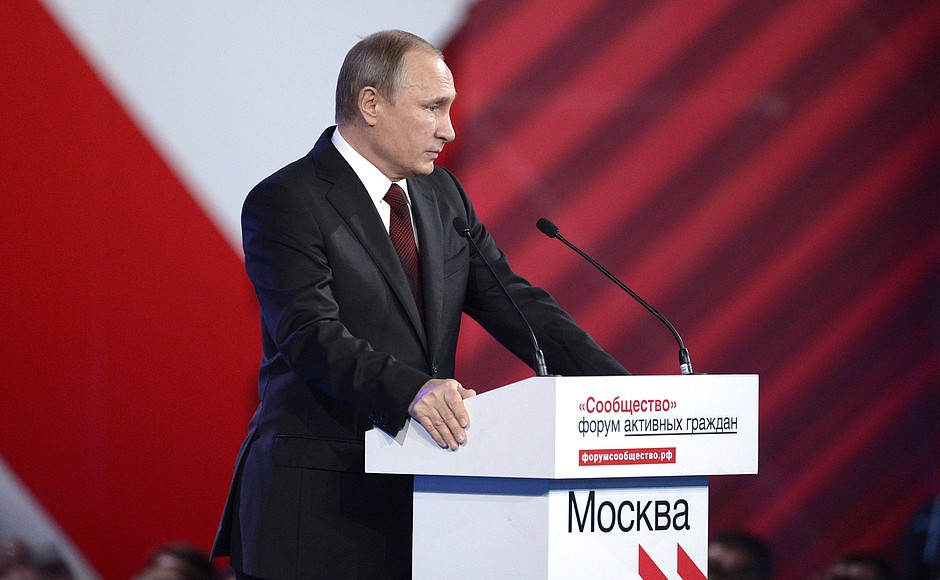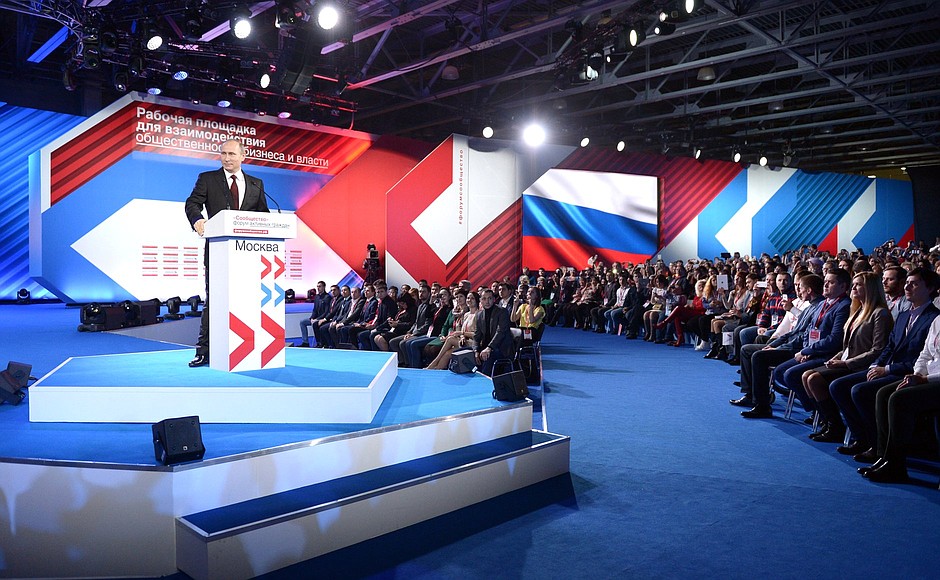The two-day forum, organised by the Russian Civic Chamber and timed to mark National Unity Day, began its work on November 3. It includes several different discussion platforms on different themes, in particular, financing citizens’ initiatives, public monitoring, interaction between the non-profit sector and the state authorities, and interethnic relations.
Regional-level Community forums took place in the nine federal districts earlier, where participants discussed development of the non-profit sector in the regions, the biggest issues and possible solutions, and support for the most effective civic activeness practices.
The discussions’ results will be summed up in the forum’s final resolution, which will be included in the Civic Chamber’s annual report on the state of civil society in Russia.
* * *
President of Russia Vladimir Putin: Friends,
We are meeting today on a holiday occasion – National Unity Day. I think that when this date was first made a national holiday, many people in Russia, myself included, thought back then, “Another holiday, why this one, what, are we short of holidays, short of chances to gather together round the table with friends and celebrate?”
But now, I see clearly and understand well just why we need this holiday. It is important for any country and people, even more so one as complex and diverse as Russia with its many peoples and religions, to stop once a year and think back over all that we have been through, all the events, all of our triumphs and victories, and also our defeats and our tragedies.
If we look back at history, not so far back from our present day, we see that when we stood together, we always achieved memorable victories, and when we were divided, we faced tragedy, disintegration, disasters, and the suffering of millions of our citizens, and we found ourselves at the mercy of false values, criminal ambitions and national catastrophe. This is why, despite our great diversity, it is essential that we have a sense of ourselves as a united nation.
Unity, of course, does not mean uniformity of thinking and views on country’s problems, future and development. It is important to remember just one thing, namely, that no matter how intense the debate may be at times, at its base should always be love for our homeland and a desire to make our country stronger, more powerful and effective, and give our people better lives.
It is not a simple thing, of course, to see clearly between personal or group ambitions, and aspirations for the good of all society and our entire people and country.
Our country has travelled a very difficult road since the early 1990s. Civil society and public organisations have travelled this road together with the country. Essentially, if we move away from scholarly definitions, they are the country and the people. What is a public organisation, after all? What is civil society? They are the country. They are society. They have various organisational structures of their own, but together, they represent the country. Of course, it is people with a particularly active stance in life who stand out in the country. Some of you are here today. I greet you and congratulate you on this holiday.
At the foundation of public organisations’ work, of course, is the desire to improve our lives and help people. At the centre of this work is the Civic Chamber, which is involved in this work in daily ongoing fashion and is also involved in organising events like this forum, of course. I want to thank the Civic Chamber members for this and say that we will continue to support public and non-profit organisations in their various areas of activity. This includes political organisations and organisations with a social focus.
As you know, last year, we allocated decent funding for this work, nearly 6 billion rubles in grant funding, of which a little more than 4 billion is federal funding. I think though that this is already insufficient today, especially as concerns the socially-focused public and non-profit organisations, which often have a better understanding and keener awareness of the people’s needs and demands than do the state or even local authorities. They are often more subtle and effective in their responses to problems, and I think they could do a more effective job of spending state money allocated for this work.
A solid sum has been earmarked for social support in 2016: nearly 250 billion rubles, slightly more than 236 billion rubles. Of course, we need to involve the socially-oriented public organisations that have proved their effectiveness and are capable of resolving the problems the state and municipal authorities face today. I think that we could put these socially-focused organisations in a separate group, select the most suitable ones and confirm their competency, and then open up access for them to the financial resources the state authorities have earmarked for social purposes.
Friends, I am absolutely sure that you and your colleagues will do everything you can to help people live better, no matter what the financing, because what you do, you do at your hearts’ call.
Congratulations! I wish you the very best! Success to you all!
